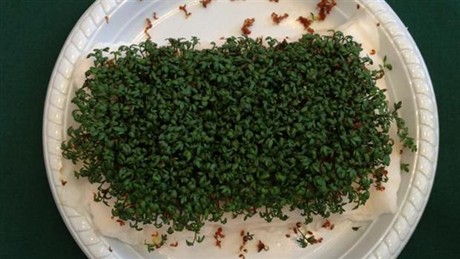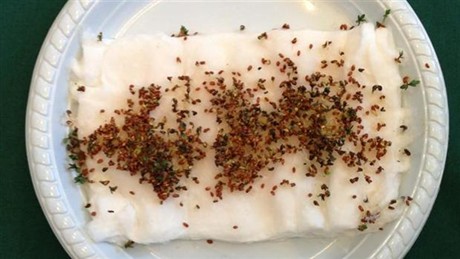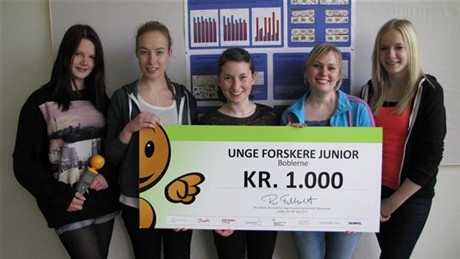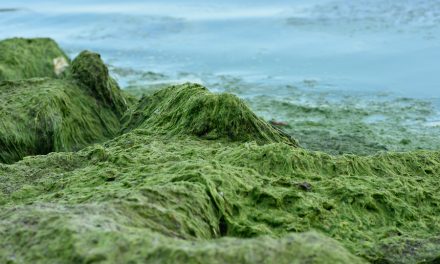Five 9th grade girls from Northern Jutland, Denmark, did a science experiment for biology class. The experiment involved growing cress seeds in two separate rooms. The result is a shocking lesson in the dangers of radiation from common electronic devices.
Their method went like this— 400 cress seeds were divided between 12 trays. The trays were divided in half and six were placed in one room, and six placed in a separate room. The rooms were kept at the same temperature, and all the trays received the same amount of water and sunlight for 12 days.
RELATED ARTICLES:
- Bluetooth Radiation May Be More DANGEROUS Than Cell Phone Radiation
- After 2 Ripon children diagnosed with cancer, kids and parents protest cell tower on school grounds
The only difference between the locations? One set of trays was placed next to two WiFi routers. The cress seeds in the trays by the router did not grow, and most were mutated or dead. The seeds grown in a room without wireless routers ended up thriving and were green and healthy.
 Unexposed cress. Credit: Cosmic Scientist
Unexposed cress. Credit: Cosmic Scientist
 Exposed cress. Credit: Cosmic Scientist
Exposed cress. Credit: Cosmic Scientist
“WE ALL THINK WE HAVE EXPERIENCED DIFFICULTY CONCENTRATING IN SCHOOL IF WE HAD SLEPT WITH THE PHONE NEXT TO OUR HEAD, AND SOMETIMES ALSO EXPERIENCED HAVING DIFFICULTY SLEEPING”, EXPLAINS LEA NIELSEN, ONE OF THE GIRLS WHO DESIGNED THE EXPERIMENT.
The experiment has changed their lives academically and personally. Aside from receiving international acclaim and encouragement, they now realize these devices aren’t so innocuous. “None of us sleep with the mobile next to the bed anymore. Either the phone is put far away, or it is put in another room. And the computer is always off”, said Lea.
RELATED ARTICLE:
Olle Johansson, the professor at the Karolinska Institute in Stockholm, was very impressed by the experiment and plans to repeat it with his colleague from Belgium, Professor Marie-Claire Cammaert at the Université libre de Bruxelles.
Professor Johansson spoke enthusiastically about the experiment, saying:
“THE GIRLS STAYED WITHIN THE SCOPE OF THEIR KNOWLEDGE, SKILLFULLY IMPLEMENTED AND DEVELOPED A VERY ELEGANT EXPERIMENT. THE WEALTH OF DETAIL AND ACCURACY IS EXEMPLARY, CHOOSING CRESS WAS VERY INTELLIGENT, AND I COULD GO ON. I SINCERELY HOPE THAT THEY SPEND THEIR FUTURE PROFESSIONAL LIFE IN RESEARCHING BECAUSE I DEFINITELY THINK THEY HAVE A NATURAL APTITUDE FOR IT. PERSONALLY, I WOULD LOVE TO SEE THESE PEOPLE ON MY TEAM!”
*Article originally appeared at ANONHQ.












